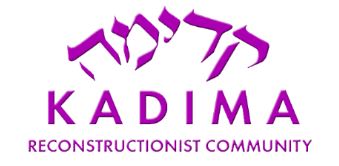In Parshat Mishpatim God says to the people Israel: “You shall be holy people to Me” (EX:22:30) What does it mean to be a holy people to God? According to this parsha it seems to mean to follow the commandments, the mitzvot, the obligations God has set forth.
We have the obligation of observing Shabbat. Ex. 20:8 “Remember Shabbat and keep it holy.”
When we bless the source of all life for giving us the commandments, we say that “God makes us holy” through them.
This parsha references the obligation of practicing Kashrut and what one can eat as connected to being a holy people.
We are obligated to be a holy people in this parsha through not wronging a stranger, and by protecting the life of a pregnant person even of that means allowing abortion.
As a teenager in the 1960’s, shoulder to shoulder with my friends, I took on the obligation, the mitzvah of Tikkun Olam, that together we could repair the world and make it better. This obligation was not a negative burden. I did it with love and vision and possibility and connection with my friends and connection with a larger world.
Author and Professor Mara Benjamin, in her 2018 book The Obligated Self, talks about how parenting a child is “to live with a yoke of responsibility”. Benjamin writes that obligation is “a name for being always already in, bonded to and responsive to a world…. Humans are creatures who come into existence in a world of constraint…..We are responsive to others and to a world we did not choose. “
The Israelites agreed to be obligated to God after escaping servitude in Egypt. What did it mean to be responsive to God, to other people, and to a world they did not choose?
According to Rabbi and Hadar Scholar Yitz Greenberg: “When I deepen …. a relationship into caring and loving the other, then I get to know them in depth as an image of God…This is a moment of holy encounter.”
I see this holy encounter also between the estranged brothers Esau and Jacob in Genesis 33, where Jacob says “for to see your face is like seeing the face of God”,
When I was a union organizer, I saw that if people believed in their joint vision, believed in their obligations to stand up for each other, their collective voices and subsequent work actions were stronger and more effective.
Obligation can be seen as an outcome of being in relationship. - Obligation not as a constraint on our freedom but obligation out of love and connection and moving through the world with others.
The influential Jewish scholar of the early 1900s, Martin Buber, author of I And Thou, espoused that whenever we enter into a genuine relationship with another person, we also discover God.
According to Rabbi William Plevan of the Jewish Theological Seminary, Buber’s central idea was that Judaism is about living in relationship, or dialogue, with God and human beings. It is here in relationship that holiness is achieved.
For me, holiness is the knowing and understanding that we are all connected. That my actions impact others. And others’ actions impact me. I love the mezuzah outside my doors. A visible sign of my Jewish identity. When I kiss the mezuzah, I breathe, and think about bringing holiness into my home (even when I come home harried) and when I leave home, I think about bringing holiness out into the world- even when I feel fearful or mistrustful. I notice possibilities and beauty and feel awe and gratitude.
I believe there are many ways to holiness: Obligations pertain to all our activities as a human being when in relationship with others. We can practice Kashrut or light Shabbat candles; we can listen to someone in pain or pick up a crying child. We can cry out injustice! We can refuse to cross a picket line.
When we make our relationships paramount as we honor our obligations and engagement with our world, we can see humanity and holiness in each person.
In Marge Piercy’s words excerpted from her Amidah:
“All living are one and holy”
“Remember in all acts: eating, working, walking, driving.”
“Make ourselves worthy.”
“Act our justice.”
“Repair goodness.”
“Try to repair the world given us.”
“Holy is the hand.”
“Holy is the mouth.”
“Lift each other on our shoulders and carry each other along.”
“Let holiness move in us.”
“Let us see the light in others and honor that light.”
I echo Marge Piercy’s words:
“Let us see the light in others and honor that light.”

 RSS Feed
RSS Feed